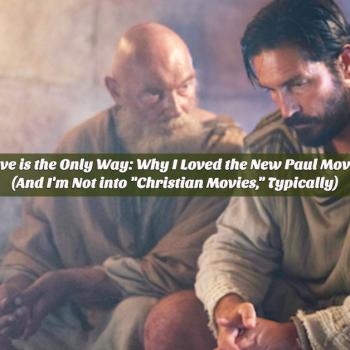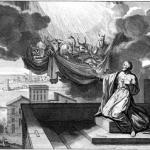Anyone who enjoys quality theological inquiry can’t get enough of N.T. Wright. Readers of this blog know that I’ve been highly influenced by his teachings on Jesus, Paul, the early church, and new creation. Wright’s new book, which is volume 4 in his Christian Origins and the Question of God series, is called: Paul and the Faithfulness of God. This is 1700 pages analyzing Paul within his Greek, Roman, and Jewish context. I’m currently in the process of reading it and plan to post a “review” of my initial thoughts.
For those who have followed Wright’s approach to Paul with interest (New Perspective or Fresh Perspective on Paul), probably also know of the controversy with Reformed figures such as John Piper. Jonathan Merritt writes:
But Wright has also become a controversial figure in recent years, igniting a heated debate among American theologians with his so-called “New Perspective on Paul.” Many prominent Christian leaders wrote rebuttals of Wright’s perspective–most notably pastor John Piper, who devoted an entire book to the matter (The Future of Justification: A Response to N.T. Wright).
This controversy, although found in the more “theological circles” of the church, often trickles down into the popular level debates between younger neo-Reformed types and progressive-ish/Anabaptist folks.
Today, Jonathan Merritt posted an interview with N.T. Wright about the debate with John Piper (and mostly about the new book as a whole). I commend the whole interview to you, which can be found here.
Excerpt:
JM: Your views on these topics have upset some American Christians in the past, particularly those in the Reformed movement. Which parts of this book will John Piper be most upset with?
NTW: Far be it from me to put words into Dr. Piper’s mouth. I am sorry he and I have never met; we share so much–a commitment to the great Reformed tradition, a commitment to the cross as the center of everything, a commitment to scripture and to the faithful and patient investigation and exposition of it.
I think what stands behind some of the ongoing disagreements and challenges which come from that quarter is the awareness that, in locating Paul (and Jesus for that matter) within the world of first-century Judaism, I am invoking the first-century Jewish sense of an ongoing narrative reaching its shocking and unexpected climax. Most Protestants assume that an ongoing narrative is a form of Catholicism, leading to an assumption that all you have to do is to belong to the story and all will be well–and leading thus to a carelessness about the radical inbreaking of the gospel both in history and individual lives. This may indeed be a danger; but it is far more dangerous to ignore the ways in which both Jesus and Paul believed that the Messianic events of Jesus, and the work of the Spirit, were in fact the fulfillment of the ancient covenant with Abraham.
Here’s another irony: I would expect that a Reformed theologian like Dr. Piper would welcome a “covenantal” reading of Paul. Perhaps he yet may. Of course, he has said many times before that he thinks my reading of Paul screens out “imputation” in his sense, and he’s right: Paul doesn’t say what that theory wants him to say. But the underlying meaning Dr. Piper and others are seeking in that theory are, I believe, not only retained but enhanced in the larger and more textually grounded reading which I have offered. I have no interest in maintaining an either/or. I am interested in seeing how what Paul actually says holds together the multiple emphases, which scholars and preachers have discerned, in his writings.
The other thing which I think is underneath the rather sharp opposition, not only from Dr. Piper but from some others, is my insistence–in line with Paul’s own vision of renewed creation in Romans 8 and elsewhere–that Paul saw the gospel and “salvation” not in terms of a “spiritual” escape from the present world but as the transformation of this present world.
– See more HERE
















